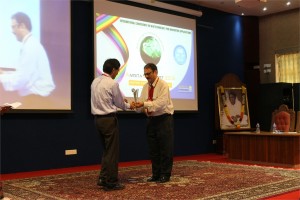 Shigeki Miyamoto, Ph.D.
Shigeki Miyamoto, Ph.D.
Professor, McArdle Laboratory for Cancer Research – UW Carbone Cancer Center
Department of Oncology, School of Medicine and Public Health
University of Wisconsin-Madison
“Inside-out” NF-κB signaling in cancer and other pathologies
The NF-κB/Rel family of transcription factors contributes to critical cellular processes, including immune, inflammatory and cell survival responses. As such, NF-κB is implicated in immunity-related diseases, as well as multiple types of human malignancies. Indeed, genetic alterations in the NF-κB signaling pathway are frequently observed in multiple human malignancies. NF-κB is normally kept inactive in the cytoplasm by inhibitor proteins. Extracellular ligands can induce the release of NF-κB from the inhibitors to allow its migration into the nucleus to regulate a variety of target genes. NF-κB activation is also induced in response to multiple stress conditions, including those induced by DNA-damaging anticancer agents. Although precise mechanisms are still unclear, research from our group has revealed a unique nuclear-to-cytoplasmic signaling pathway. In collaboration with bioengineers, clinicians and pharmaceutical industry, our lab has developed new methods to analyze primary cancer patient samples and identified several compounds with different mechanisms that mitigate this cell survival pathway. Further contributions from other labs have also revealed additional mechanisms and molecular players in this “inside-out” signaling pathway and expanded its role in other physiological and pathological processes, including B cell development, premature aging and therapy resistance of certain cancers. Our own new findings, along with these recent developments in the field, will be highlighted.
 Tim Guilliams, Ph.D.
Tim Guilliams, Ph.D.
Junior Associate Fellow at the Centre for Science and Policy, University of Cambridge
From Camels to Worms: Novel Approaches for Drug Discovery in Parkinson’s Disease
The discovery of novel treatments for neurodegenerative diseases, such as Parkinson’s disease, represents one of the biggest scientific challenges of the 21st century. The development of new tools and models to study the mechanisms underlying neurotoxicity is therefore essential. During my talk, I will outline new strategies for drug design and innovation used during my PhD at the University of Cambridge, which include the combination of fluorescent nematode worms, camelid antibody fragment technology and chemical compounds. These novel approaches will help us to gain insights into the key pathogenic steps involved in Parkinson’s disease and potentially lead to new therapeutic strategies.

